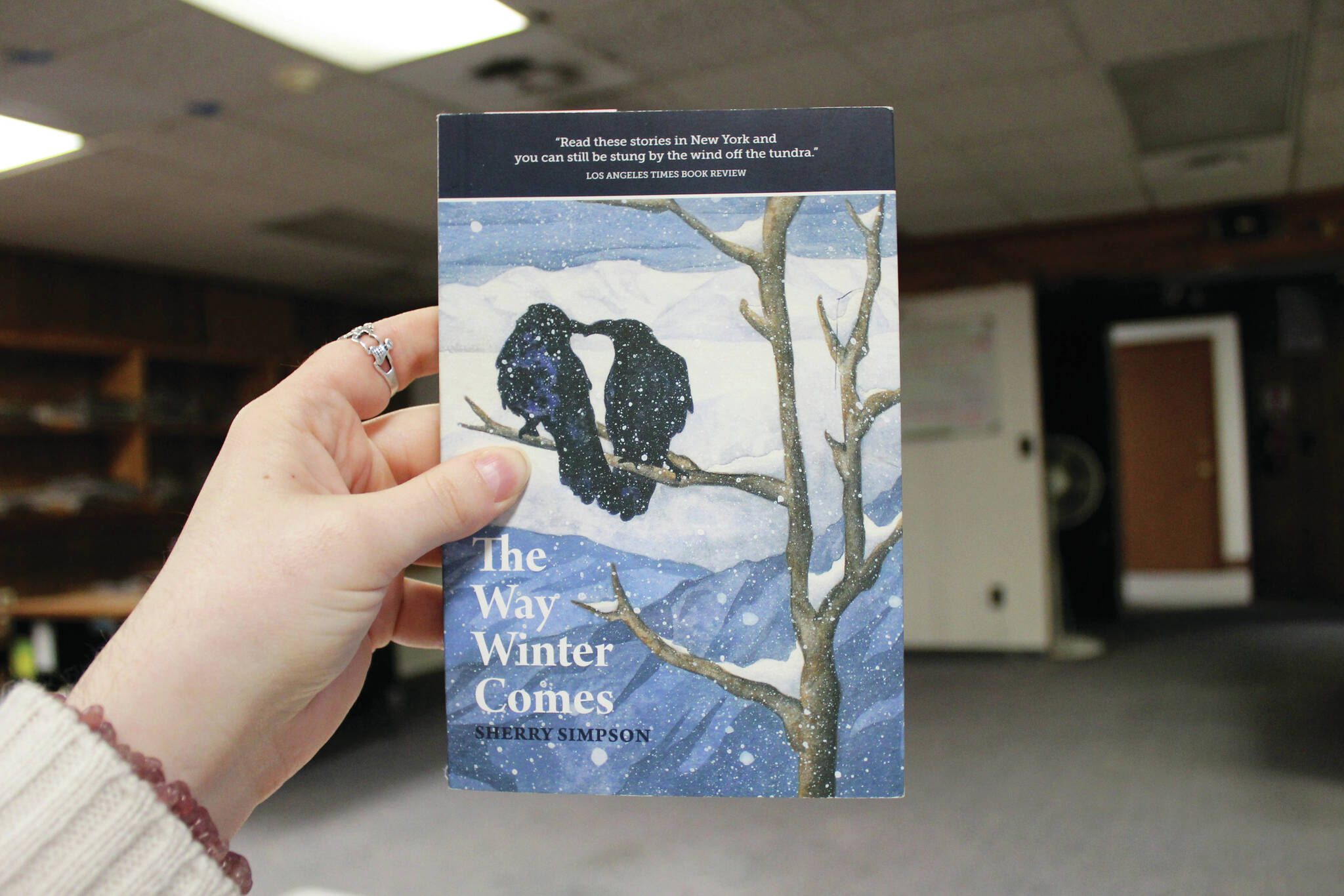I feel like it’s been a brutal winter so far. There were a few days of perfect snowy conditions, and if I’d known they’d be so quickly followed by rain that turned it to slush and ice, I probably would have tried to get outside a little bit more.
There’s a certain magic about winter in Alaska that I appreciate almost as much as long summer days. In the same way I long for evenings under the midnight sun during the winter, I often fantasize about cotton candy skies and the plush feel of the world after a heavy snowfall during the summer.
It was refreshing, therefore, to pick up Sherry Simpson’s “The Way Winter Comes” and find in her a somewhat kindred spirit. Across the eight stories that make up her award-winning collection, which was first published in 1998, winter is a central theme.
“Summer carries you away, but winter inhabits you,” she writes during a story about visiting Utqiagvik.
That particular story, which shares a name with the book, is haunting in more ways than one. The basic storyline is that Simpson is visiting an archaeological site at which the body of an Alaska Native girl emerged from a bluff. Across roughly 15 pages, Simpson weaves the circumstances of the body with musings on the Arctic’s changing landscape and her own gripes with the cold.
“I don’t like to be cold,” she notes.
Cold for Simpson is more than just a physical state of being, though. It’s an existential one.
“Sometimes I feel the waves of frigid air cascading off the windows surrounding our bed, and I shiver thinking of the way cold must radiate through the earth,” she said. “Each January, when winter air becomes something fluid that pools against the landscape, I remember to tell my husband I wish to be cremated when I die.”
The last line was especially sobering after I learned that Simpson died in 2020, at the age of 60. As reported by the Juneau Empire — one of the Peninsula Clarion’s sister newspapers, which Simpson also wrote for — her death stemmed from complications associated with a previously undiagnosed brain tumor.
The knowledge of Simpson’s death, though, had the effect of making more poignant her obvious love for all that Alaska has to give. Four of the stories center on and highlight the unique beauty of a specific Alaska animal: wolf, bear, raven, moose. As much as the stories are about positioning each creature in the larger context of the natural world, Simpson also shares her own reflections.
“Nature does not exist to teach us lessons, but, nevertheless, by watching ravens I’ve learned something about how to survive winter with spirit intact,” she writes.
One of the book’s most compelling stories is one in which Simpson remembers a week she spent alone on Lincoln Island, in Lynn Canal near Juneau. It’s a dreamy tale of days spent watching whales, revisiting a story she wrote as a child about survival on a desert island and succumbing to the flow of time.
Persistent throughout the book is Simpson’s strong sense of self and place, which she shares with the reader using clear and poetic prose. The beauty of her writing speaks for itself.
“I’ve used the same tone other nature lovers do as they talk about the ‘natural circle of life’ in hushed and reverent tones, as if it were a church we could never attend but only stand outside, listening to the godly and mysterious harmonies issuing from within,” she writes in one story.
As I think ahead to the weeks of cold and darkness we have coming this winter, I find myself more ready to take it in stride after reading “The Way Winter Comes.” If I’m able to assign even a fraction of the meaning and cosmic purpose to my own life that seems to come so naturally to Simpson, it is sure to be a rewarding season.
“The Way Winter Comes” was first published in 1998 by Sasquatch Books and subsequently received the Chinook Literary Prize. The edition reviewed for this column was published in 2018 by Juneau-based Shorefast Editions, LLC.
Reach reporter Ashlyn O’Hara at ashlyn.ohara@peninsulaclarion.com.
Off the Shelf is a bimonthly literature column written by the staff of the Peninsula Clarion.

